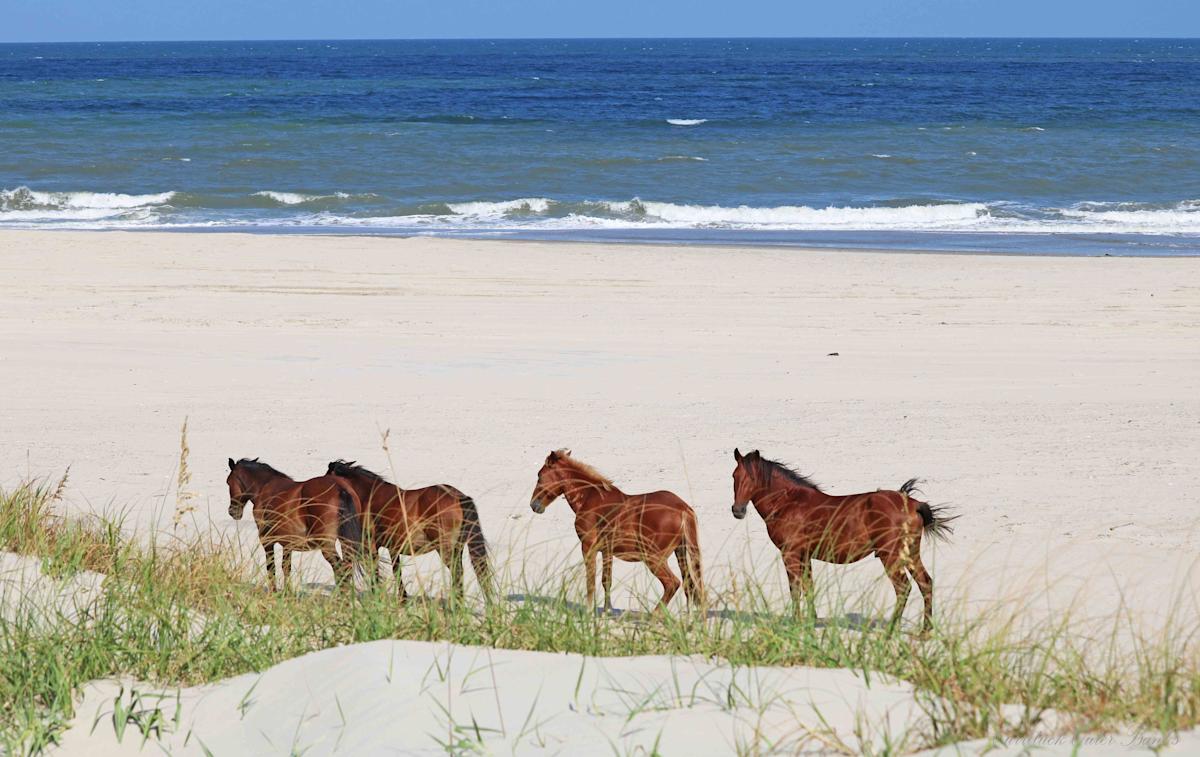Wild horses in the United States are technically feral, descended from once-domesticated livestock that escaped and survived to breed. They can be found in limited numbers in various locations across the country, including Cumberland Island National Seashore in Georgia, Corolla in the Outer Banks, and Chinconteague and Assateague in Virginia and Maryland. These horses are awe-inspiring animals that can be viewed from a distance in their natural habitats.
The Cumberland Island herd of feral horses, descended from modern breeds like Tennessee Walkers and Arabians, recently became the subject of a legal battle due to lack of management and resources. Visitors can view them grazing on the island’s untouched beaches, but it’s recommended to keep a safe distance. The Greyfield Inn on Cumberland Island offers accommodations and nature education for guests interested in experiencing the beauty of the island.
The Chinconteague and Assateague Wild Pony Swim is a real event that involves wrangling horses from Virginia to Maryland for an annual auction. The proceeds from the auction go towards providing veterinary care for the horses and supporting local charities. South Carolina’s Marsh Tacky horses, descendants of Spanish explorers’ horses, played a role in America’s victory in the Revolutionary War and are now being conserved and restored on Daufuskie Island. Visitors can see the efforts to restore the herd in their native habitat at the Daufuskie Island Marsh Tacky Association.







